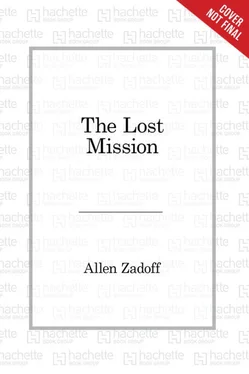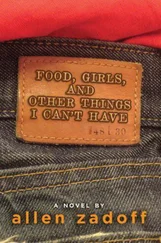“Is that what you think happened?” he says. “You’re wrong. That team wasn’t meant for you.”
“Funny, because it was me they were shooting at.”
Father exhales slowly, his grip tightening on the cyclic.
“We know you left Camp Liberty to go on an operation at Lake Massabesic.”
“The water treatment plant.”
“That’s right. We saw the photo that was transmitted from the plant. We had to assume you’d turned. If so, you had likely given us up to Moore. Maybe you’d told him about the safe house. He would send people to investigate, perhaps try to access our comms. We hired a freelance team to wait for them. Just in case.”
“But you’d already sanitized the house. Even if Moore’s people had come, they would have found nothing.”
“It was an opportunity.”
I look at Father. His face is composed again, his control of the helicopter exacting.
“What kind of opportunity?” I say.
“The woman you met at the safe house is an ex–FBI agent. She was part of a team that investigated Moore a decade ago.”
I think about the woman, her reaction under fire, the way she managed herself in what should have been a panicked situation.
“You put a freelance team in place so if Moore’s people showed up at her house—”
“It would look like Moore was exacting revenge,” Father says. “An attack in a suburban neighborhood. Civilians dead. Moore’s people on the scene.”
“You were setting him up,” I say, suddenly understanding.
“It would be an ironclad case, a reason for the FBI to go in and break up the camp. Not the mission we had in mind, but we realized we had to take Moore out one way or another. This was a contingency.”
It’s an ingenious plan, if you disregard the fact that The Program was willing to sacrifice an innocent family to achieve it.
I realize now that I made a mistake thinking the freelance team was sent for me. If The Program wanted me dead, they have other ways to do it.
Quieter ways.
Father says, “We had no way of knowing you would be the one to go to the safe house.”
“But it was me,” I say. “And I was alone.”
“Regretful,” Father says. “But you did what you were trained to do. Thank God you survived.”
Father adjusts the helicopter, arcing to the west, away from Boston.
When I look back at him, he’s watching me, staring into my eyes.
“You spent a long time inside that camp,” he says.
“Barely three days all told.”
“But it was enough,” Father says.
“Enough to kill Moore? Yes.”
“Enough to find out the truth. About our soldier.”
I nod. This is what Father is interested in. I see him struggling to appear casual.
“What happened to the soldier?” he says.
“He’s dead.”
I watch Father’s face, gauging his reaction, trying to understand what he feels, if he feels.
I see nothing there. No sadness. No pity.
“You’re sure he’s dead?” Father says.
“Very sure. I’m the one who killed him.”
He clears his throat.
“He turned,” Father says, his voice barely a whisper.
I nod.
“How did they do it?” he says.
I remember what Moore told me. Francisco had already turned against The Program long before he got to Camp Liberty. Moore only provided the possibility of a different life, an alternative to The Program. One that was more attractive to Francisco.
I could tell this to Father, but for some reason, I don’t want him to know.
It’s frightening enough for him to think that The Program could be outmatched by another organization. But the idea that that his soldiers are thinking autonomously would be far more damaging.
I will hang on to this information until I need it.
So I tell Father a different story.
“Moore brainwashed him. Cult induction techniques at a sophisticated level. Thought reform, complete isolation, induced dependency, paranoia of the outside world…”
“That shouldn’t have worked on someone like Francisco.”
“I was up there for three days and things started to get confusing. Francisco was there for almost four months.”
“So he’s gone?”
“I made sure of it.”
“Protect The Program,” Father says.
I meet his gaze.
“My prime objective,” I say.
“Well done,” Father says.
I buckle myself into the seat and lean back.
“Enough for now,” Father says. “There’s plenty of time to debrief later.”
I nod and close my eyes.
After a few minutes I fall sleep. My body shuts down after all it’s been through, slipping into recuperative mode.
I jerk awake only once to find Father looking at me. He gestures to a water bottle by the side of my seat. I take a chug, spit soot on the floor between my legs. Then I gulp down half the bottle, lean back, and fall into a deep sleep again.
The nightmares, whatever they might be, will come later.
Now I dream only of wind and sky, the thud of the rotors carrying me to safety, the magic of a rope appearing in front of me from out of nowhere.
I wake up when I feel the helicopter begin to descend. I’m looking down at a military base.
“Hanscom AFB,” Father says. “We’re about thirty miles northwest of the city.”
“Won’t we be seen?” I say.
“The Air Force and National Guard have been mobilized,” Father says. “And there’s nothing unusual about a military helicopter putting down on a military base.”
Father lands the helicopter, the blades slowly winding down above us.
I look at my jeans and the bloodstained shirt. Father notes it.
“There’s a bag behind the seat for you,” he says.
I find a small duffel in the back. I open the bag and take out a new military jacket and camos. An ID card identifying me as a National Guardsman.
“That should get you off base easily enough. Not that you need the help,” Father says.
I can’t take my shirt off in front of Father or he will see my wounds. There will be questions. Instead I slip the military-issue coat over my bloodied T-shirt, then I slide on the pants.
“Reports from Boston suggest that casualties will be minimal. You triggered the evacuation early enough to save lives. Homeland Security is rounding up the squads that blew the power grid.”
“They’re just kids,” I say.
“Dangerous kids,” Father says. “But they’ll be dealt with fairly. In any case, it’s got nothing to do with us. Not anymore.”
I pull the Guard ID out of the bag and slip it into my pocket.
“What happened on that roof?” Father says. “You couldn’t stop this?”
“I misjudged the girl.”
“That seems to be an issue for you.”
I hold my body still, willing myself not to react to Father’s statement.
“Not an issue,” I say.
But I’m lying. Because I tried to save Miranda.
Would I have really left The Program in order to be with her?
I’ll never know. She didn’t give me the chance to find out.
“Once is an anomaly,” Father says. “Twice is an issue.”
He’s right. Samara was one. Miranda is two. There won’t be a number three. The Program won’t allow it.
“I didn’t know she had a backup detonator,” I say.
“You couldn’t get it away from her?”
Father’s question makes me angry.
“She jumped before I could get to her,” I say quickly. “I watched her die.”
I want to say more, but I stop myself. Without the chip in place, my emotions are raw, too close to the surface. I can’t trust myself to speak too much.
Father’s expression changes at my tone. His face softens.
“You’ve been through a lot,” he says.
He says it like it matters to him, like he’s concerned for me.
Читать дальше












